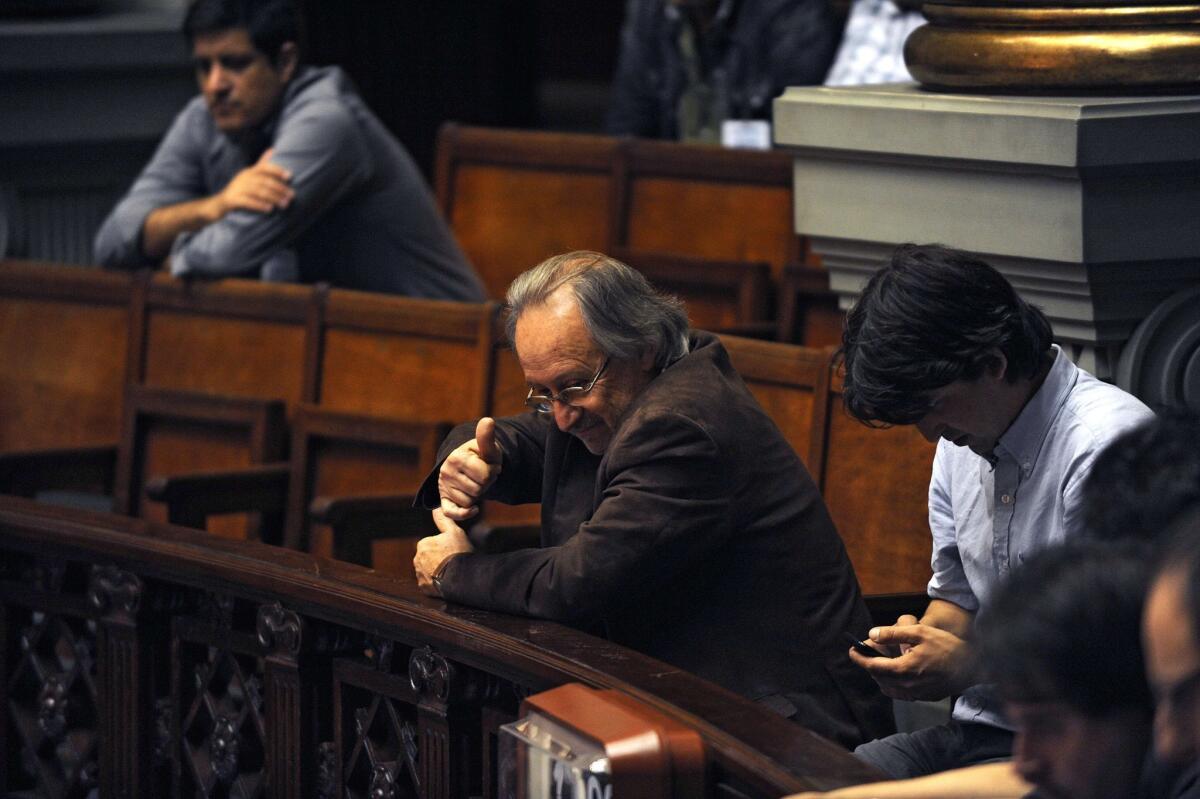In pioneering experiment, Uruguay nationalizes marijuana trade

In a bold and controversial move, Uruguay on Tuesday became the first country to legalize marijuana and make it a farm-to-table state business.
President Jose Mujica championed the bill that narrowly passed the Chamber of Senators, arguing that “the repressive path has failed” to discourage drug use. Despite penalties for buying or selling marijuana, its consumption has grown and served to enrich the criminals who control illegal trade, he said.
“We’ve given this market as a gift to the drug traffickers, and that is more destructive socially than the drug itself, because it rots the whole of society,” the president told Argentina’s Telam news agency [link in Spanish].
By legalizing, regulating and taxing marijuana production and sales, Uruguay is moving the drug’s use out of the shadows and helping social and health professionals better observe and respond to those who develop addictions, Mujica told lawmakers and media.
A 78-year-old leftist and former guerrilla fighter, Mujica has taken on the mantle of “the world’s poorest president” for donating 90% of his salary to charity. He has also spearheaded other controversial legislation during his three years in office, including South America’s most liberal abortion law and the region’s first measure legalizing gay marriage.
With the Uruguayan Senate’s 16-13 vote nationalizing the marijuana trade, the government now has 120 days to draft regulations for licensing and registering producers, sellers and buyers, news agencies reported from Montevideo.
No prescriptions will be required of buyers, who can purchase up to 40 grams a month at the local pharmacy where they register, according to the bill. Only those over 18 and living in Uruguay may register, to avoid creating a magnet for drug tourism, the measure’s sponsors emphasized.
The project was also supported by billionaire philanthropist George Soros and his Open Society Foundation and Drug Policy Alliance, which underwrote research on alternatives to criminalization and the U.S.-led “war on drugs” that has fueled violence across Latin America.
But the legalization move was opposed by most Uruguayans, according to polling data. An August survey by Cifra/Gonzalez Raga & Associates found 61% of respondents against the legalization measure and 28% for it, Bloomberg reported.
During the lengthy debate that preceded the vote, teachers, psychologists, pharmacists and opposition lawmakers urged the Senate to defeat the bill.
Uruguay, a country of 3.3 million with relatively low crime rates, could see a rise in the consumption of marijuana and other drugs as a result of the legalization, opponents told the lawmakers, to no avail.
ALSO:Crowds mourn as Nelson Mandela’s ‘long walk is over’
Israel passes law aimed at deterring African migrants
Lenin remains powerful symbol of Russian domination of Ukraine
Twitter: @cjwilliamslat
More to Read
Sign up for Essential California
The most important California stories and recommendations in your inbox every morning.
You may occasionally receive promotional content from the Los Angeles Times.











